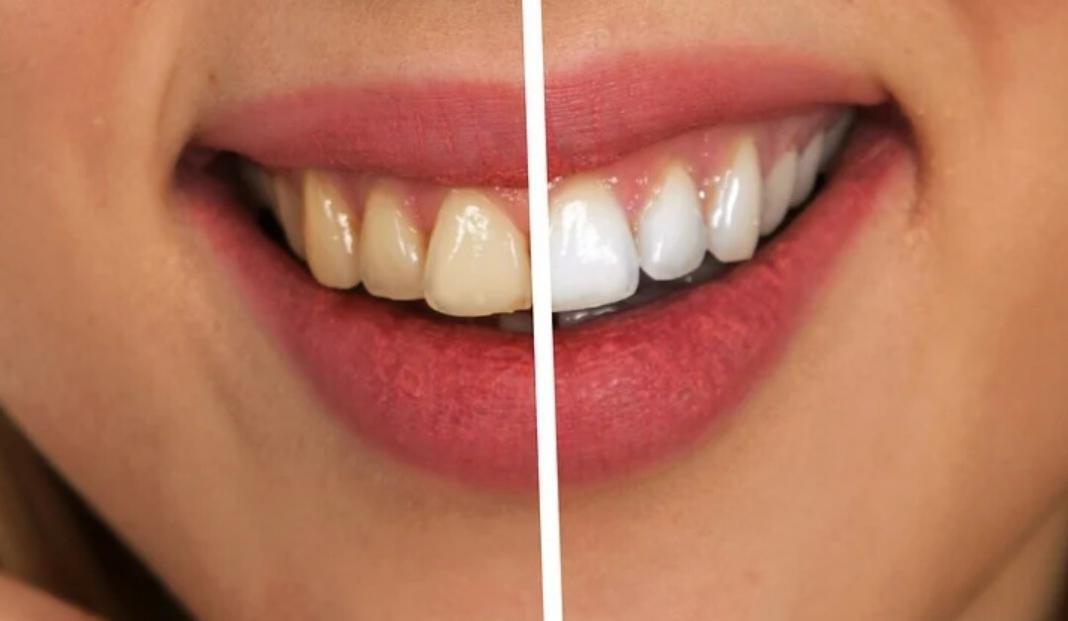A sparkling smile can have a significant impact on both our self-confidence and our overall appearance. A bright, pearly-white smile is something that everyone wishes they had. However, some people are blessed with naturally white teeth while others are not. Several factors, including aging, genetics, smoking, and the consumption of beverages such as coffee, tea, or red wine, can all contribute to tooth discoloration. Whitening your teeth is a cosmetic dental procedure that can help make your smile more attractive by making your teeth appear whiter. This article will discuss the pros and cons of teeth whitening to help you decide if it is something you should do.
What Are Teeth Whitening?
Whitening the teeth is a cosmetic dental procedure that involves the use of bleaching agents to remove stains and discoloration from the teeth. Whiter teeth can make a person’s smile look healthier and more pleasing. Whitening your teeth can be done in a dental office with professional-grade products and equipment, or at home with over-the-counter products like whitening toothpaste, strips, and gels. The best way to get noticeable and long-lasting results is to have your teeth whitened professionally.
What Are the Types of Teeth Whitening?
There are numerous teeth whitening options available, including toothpaste, strips, and gels, in addition to professional-grade whitening. Understanding how each product functions and which one is best for your needs is crucial because every product has benefits and drawbacks.
How Long Do the Results of Whitening Last?
Depending on the type of product used and individual factors like diet and lifestyle, the time it takes for teeth whitening results to appear can vary. Professional teeth whitening can produce results that can last for years, whereas over-the-counter products might only produce short-term effects that last for a few months.
What Kind of Maintenance Is Necessary After Teeth Whitening?
Maintaining good oral hygiene practices, such as consistent brushing and flossing, as well as avoiding foods and beverages that can stain teeth, such as coffee, tea, and red wine, are crucial for maintaining the results of teeth whitening.
Is Teeth Whitening Expensive?
The price of having your teeth whitened can change depending on the kind of product that is used to whiten your teeth, as well as whether the procedure is performed in a dental office or at home. Whitening your teeth at a dentist’s office might set you back more money, but it is usually more efficient, and it can give you results that are both more significant and more long-lasting. As it is a cosmetic procedure, insurance usually does not cover the cost.
Alternatives to Teeth Whitening:
In addition to teeth whitening, there are several other cosmetic dental procedures that, like veneers, bonding, and crowns, can help improve the appearance of a person’s teeth and give them a more attractive overall appearance. Because each treatment option has a unique set of benefits and drawbacks, it is important to discuss your options with a dental professional before deciding which method will best meet your requirements.
What Are the Advantages of Teeth Whitening?
Improves Appearance: A gleaming, snow-white smile can work wonders for your appearance, making you appear both younger and more appealing.
Increased Confidence:
Teeth discoloration can have a negative impact on a person’s self-confidence and cause them to be self-conscious about their smile. Whitening your teeth can increase your self-confidence and make you feel more at ease and relaxed in social gatherings.
Safe and Effective:
Professional teeth whitening is a safe and effective procedure that can give you results that are both noticeable and lasting for a long time.
Affordable:
Teeth whitening is a relatively affordable cosmetic dental procedure compared to other esthetic procedures like veneers, Lumineers, or crowns.
Better Oral Health:
People who whiten their teeth may be more likely to take better care of their teeth and maintain good oral hygiene habits, such as brushing and flossing their teeth on a regular basis.
What Are the Risks Associated with Teeth Whitening?
Teeth whitening carries some risks, just like any other dental or medical procedure. When bleaching agents are used excessively, they can wear away tooth enamel, leading to pain, sensitivity, and inflammation of the gums and mouth. The misuse or lack of knowledge regarding the proper use of over-the-counter products can cause serious harm. In addition, teeth whitening is not recommended for those with certain medical conditions, such as those with gum disease, tooth decay, or hypersensitivity, as well as pregnant or breastfeeding women. Always seek the advice of a dentist before attempting a teeth whitening treatment on your own.
Is Teeth Whitening Worth It?
The answer is Yes! Getting your teeth whitened at a dentist’s office can be expensive while doing it at home is not too expensive. Both kinds of whitening are worth it if you follow the post-operative instructions properly to maintain the results for a longer time. In-office teeth whitening can show a remarkable result that gives you the confidence and self-esteem you have always wanted if you have severely discolored teeth or are embarrassed by your smile. However, if you have very mild discoloration, you can choose home whitening, which is less expensive than in-office whitening. The cost that you pay for whitening is less than what it offers in terms of results. As it boosts your confidence and motivates you to maintain your oral hygiene, your dental health improves. Therefore, it not only has esthetic benefits but also improves psychosocial aspects as well.
Conclusion:
To summarize, getting your teeth whitened is a great way to boost your self-confidence as well as the appearance of your smile because it can make your teeth look better than they did before. Whitening one’s teeth may be associated with some risks, but these can be prevented by first consulting with a dentist and then carefully following all the procedures and upkeep practices that are recommended. It is essential to consider which type of whitening you need prior to planning your teeth whitening procedure. In the end, the decision to have one’s teeth whitened depends on the individual’s needs and preferences.
You may want to read more,
- 11 awesome reasons why a happy and a smiling face makes you successful
- 7 Unique Ways To Make Someone Smile







